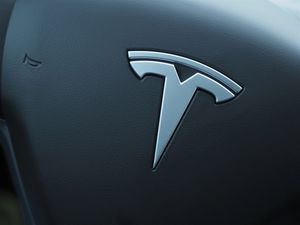
Texas Instruments (NASDAQ: TXN), a venerable giant in the semiconductor industry, is demonstrating remarkable financial resilience and strategic foresight as it navigates a period of slow market recovery. While the broader semiconductor landscape experiences fluctuating demand, particularly outside the booming high-end AI accelerator market, TI's robust financial health and deep-seated "strong franchise" in analog and embedded processing position it as a critical, albeit often understated, enabler for the pervasive deployment of artificial intelligence, especially at the edge, in industrial automation, and within the automotive sector. As of Q3 2025, the company's consistent revenue growth, strong cash flow, and significant long-term investments underscore its pivotal role in building the intelligent infrastructure that underpins the AI revolution.
TI's strategic focus on foundational chips, coupled with substantial investments in domestic manufacturing, ensures a stable supply chain and a diverse customer base, insulating it from some of the more volatile swings seen in other segments of the tech industry. This stability allows TI to steadily advance its AI-enabled product portfolio, embedding intelligence directly into a vast array of real-world applications. The narrative of TI in late 2024 and mid-2025 is one of a financially sound entity meticulously building the silicon bedrock for a smarter, more automated future, even as it acknowledges and adapts to a semiconductor market recovery that is "continuing, though at a slower pace than prior upturns."
Embedding Intelligence: Texas Instruments' Technical Contributions to AI
Texas Instruments' technical contributions to AI are primarily concentrated on delivering efficient, real-time intelligence at the edge, a critical complement to the cloud-centric AI processing that dominates headlines. The company's strategy from late 2024 to mid-2025 has seen the introduction and enhancement of several product lines specifically designed for AI and machine learning applications in industrial, automotive, and personal electronics sectors.
A cornerstone of TI's edge AI platform is its scalable AM6xA series of vision processors, including the AM62A, AM68A, and AM69A. These processors are engineered for low-power, real-time AI inference. The AM62A, for instance, is optimized for battery-operated devices like video doorbells, performing advanced object detection and classification while consuming less than 2 watts. For more demanding applications, the AM68A and AM69A offer higher performance and scalability, supporting up to 8 and 12 cameras respectively. These chips integrate dedicated AI hardware accelerators for deep learning algorithms, delivering processing power from 1 to 32 TOPS (Tera Operations Per Second). This enables them to simultaneously stream multiple 4K60 video feeds while executing onboard AI inference, significantly reducing latency and simplifying system design for applications ranging from traffic management to industrial inspection. This differs from previous approaches by offering a highly integrated, low-power solution that brings sophisticated AI capabilities directly to the device, reducing the need for constant cloud connectivity and enabling faster, more secure decision-making.
Further expanding its AI capabilities, TI introduced the TMS320F28P55x series of C2000 real-time microcontrollers (MCUs) in November 2024. These MCUs are notable as the industry's first real-time microcontrollers with an integrated neural processing unit (NPU). This NPU offloads neural network execution from the main CPU, resulting in a 5 to 10 times lower latency compared to software-only implementations, achieving up to 99% fault detection accuracy in industrial and automotive applications. This represents a significant technical leap for embedded control systems, enabling highly accurate predictive maintenance and real-time anomaly detection crucial for smart factories and autonomous systems. In the automotive realm, TI continues to innovate with new chips for advanced driver-assistance systems (ADAS). In April 2025, it unveiled a portfolio including the LMH13000 high-speed lidar laser driver for improved real-time decision-making and the AWR2944P front and corner radar sensor, which features enhanced computational capabilities and an integrated radar hardware accelerator specifically for machine learning in edge AI automotive applications. These advancements are critical for the development of more robust and reliable autonomous vehicles.
real-time microcontrollers (MCUs) in November 2024. These MCUs are notable as the industry's first real-time microcontrollers with an integrated neural processing unit (NPU). This NPU offloads neural network execution from the main CPU, resulting in a 5 to 10 times lower latency compared to software-only implementations, achieving up to 99% fault detection accuracy in industrial and automotive applications. This represents a significant technical leap for embedded control systems, enabling highly accurate predictive maintenance and real-time anomaly detection crucial for smart factories and autonomous systems. In the automotive realm, TI continues to innovate with new chips for advanced driver-assistance systems (ADAS). In April 2025, it unveiled a portfolio including the LMH13000 high-speed lidar laser driver for improved real-time decision-making and the AWR2944P front and corner radar sensor, which features enhanced computational capabilities and an integrated radar hardware accelerator specifically for machine learning in edge AI automotive applications. These advancements are critical for the development of more robust and reliable autonomous vehicles.
Initial reactions from the embedded systems community and industrial automation experts have been largely positive, recognizing the practical implications of bringing AI inference directly to the device level. While not as flashy as cloud AI supercomputers, these integrated solutions are seen as essential for the widespread adoption and functionality of AI in the physical world, offering tangible benefits in terms of latency, power consumption, and data privacy. Furthermore, TI's commitment to a robust software development kit (SDK) and ecosystem, including AI tools and pre-trained models, facilitates rapid prototyping and deployment, lowering the barrier to entry for developers looking to incorporate AI into embedded systems. Beyond edge devices, TI also addresses the burgeoning power demands of AI computing in data centers with new power management devices and reference designs, including gallium nitride (GaN) products, enabling scalable power architectures from 12V to 800V DC, critical for the efficiency and density requirements of next-generation AI infrastructures.
Shaping the AI Landscape: Implications for Companies and Competitive Dynamics
Texas Instruments' foundational role in analog and embedded processing, now increasingly infused with AI capabilities, significantly shapes the competitive landscape for AI companies, tech giants, and startups alike. While TI may not be directly competing with the likes of Nvidia (NASDAQ: NVDA) or Advanced Micro Devices (NASDAQ: AMD) in the high-performance AI accelerator market, its offerings are indispensable to companies building the intelligent devices and systems that utilize AI.
Companies that stand to benefit most from TI's developments are those focused on industrial automation, robotics, smart factories, automotive ADAS and autonomous driving, medical devices, and advanced IoT applications. Startups and established players in these sectors can leverage TI's low-power, high-performance edge AI processors and MCUs to integrate sophisticated AI inference directly into their products, enabling features like predictive maintenance, real-time object recognition, and enhanced sensor fusion. This reduces their reliance on costly and latency-prone cloud processing for every decision, democratizing AI deployment in real-world environments. For example, a robotics startup can use TI's vision processors to equip its robots with on-board intelligence for navigation and object manipulation, while an automotive OEM can enhance its ADAS systems with TI's radar and lidar chips for more accurate environmental perception.
The competitive implications for major AI labs and tech companies are nuanced. While TI isn't building the next large language model (LLM) training supercomputer, it is providing the essential building blocks for the deployment of AI models in countless edge applications. This positions TI as a critical partner rather than a direct competitor to companies developing cutting-edge AI algorithms. Its robust, long-lifecycle analog and embedded chips are integrated deeply into systems, providing a stable revenue stream and a resilient market position, even as the market for high-end AI accelerators experiences rapid shifts. Analysts note that TI's margins are "a lot less cyclical" compared to other semiconductor companies, reflecting the enduring demand for its core products. However, TI's "limited exposure to the artificial intelligence (AI) capital expenditure cycle" for high-end AI accelerators is a point of consideration, potentially impacting its growth trajectory compared to firms more deeply embedded in that specific, booming segment.
Potential disruption to existing products or services is primarily positive, enabling a new generation of smarter, more autonomous devices. TI's integrated NPU in its C2000 MCUs, for instance, allows for significantly faster and more accurate real-time fault detection than previous software-only approaches, potentially disrupting traditional industrial control systems with more intelligent, self-optimizing alternatives. TI's market positioning is bolstered by its proprietary 300mm manufacturing strategy, aiming for over 95% in-house production by 2030, which provides dependable, low-cost capacity and strengthens control over its supply chain—a significant strategic advantage in a world sensitive to geopolitical risks and supply chain disruptions. Its direct-to-customer model, accounting for approximately 80% of its 2024 revenue, offers deeper insights into customer needs and fosters stronger partnerships, further solidifying its market hold.
The Wider Significance: Pervasive AI and Foundational Enablers
Texas Instruments' advancements, particularly in edge AI and embedded intelligence, fit into the broader AI landscape as a crucial enabler of pervasive, distributed AI. While much of the public discourse around AI focuses on massive cloud-based models and their computational demands, the practical application of AI in the physical world often relies on efficient processing at the "edge"—close to the data source. TI's chips are fundamental to this paradigm, allowing AI to move beyond data centers and into everyday devices, machinery, and vehicles, making them smarter, more responsive, and more autonomous. This complements, rather than competes with, the advancements in cloud AI, creating a more holistic and robust AI ecosystem where intelligence can be deployed where it makes the most sense.
The impacts of TI's work are far-reaching. By providing low-power, high-performance processors with integrated AI accelerators, TI is enabling a new wave of innovation in sectors traditionally reliant on simpler embedded systems. This means more intelligent industrial robots capable of complex tasks, safer and more autonomous vehicles with enhanced perception, and smarter medical devices that can perform real-time diagnostics. The ability to perform AI inference on-device reduces latency, enhances privacy by keeping data local, and decreases reliance on network connectivity, making AI applications more reliable and accessible in diverse environments. This foundational work by TI is critical for unlocking the full potential of AI beyond large-scale data analytics and into the fabric of daily life and industry.
Potential concerns, however, include TI's relatively limited direct exposure to the hyper-growth segment of high-end AI accelerators, which some analysts view as a constraint on its overall AI-driven growth trajectory compared to pure-play AI chip companies. Geopolitical tensions, particularly concerning U.S.-China trade relations, also pose a challenge, as China remains a significant market for TI. Additionally, the broader semiconductor market is experiencing fragmented growth, with robust demand for AI and logic chips contrasting with headwinds in other segments, including some areas of analog chips where oversupply risks have been noted.
Comparing TI's contributions to previous AI milestones, its role is akin to providing the essential infrastructure rather than a headline-grabbing breakthrough in AI algorithms or model size. Just as the development of robust microcontrollers and power management ICs was crucial for the widespread adoption of digital electronics, TI's current focus on AI-enabled embedded processors is vital for the transition to an AI-driven world. It's a testament to the fact that the AI revolution isn't just about bigger models; it's also about making intelligence ubiquitous and practical, a task at which TI excels. Its long design cycles and deep integration into customer systems provide a different kind of milestone: enduring, pervasive intelligence.
The Road Ahead: Future Developments and Expert Predictions
Looking ahead, Texas Instruments is poised for continued strategic development, building on its strong franchise and cautious navigation of the slow market recovery. Near-term and long-term developments will likely center on the continued expansion of its AI-enabled embedded processing portfolio and further investment in its advanced manufacturing capabilities. The company is committed to its ambitious capital expenditure plans, projecting to spend around $50 billion by 2025 on multi-year phased expansions in the U.S., including a minimum of $20 billion to complete ongoing projects by 2026. These investments, partially offset by anticipated U.S. CHIPS Act incentives, underscore TI's commitment to controlling its supply chain and providing reliable, low-cost capacity for future demand, including that driven by AI.
Expected future applications and use cases on the horizon are vast. We can anticipate more sophisticated industrial automation, where TI's MCUs with integrated NPUs enable even more precise predictive maintenance and real-time process optimization, leading to highly autonomous factories. In the automotive sector, continued advancements in TI's radar, lidar, and vision processors will contribute to higher levels of vehicle autonomy, enhancing safety and efficiency. The proliferation of smart home devices, wearables, and other IoT endpoints will also benefit from TI's low-power edge AI solutions, making everyday objects more intelligent and responsive without constant cloud interaction. As AI models become more efficient, they can be deployed on increasingly constrained edge devices, expanding the addressable market for TI's specialized processors.
Challenges that need to be addressed include navigating ongoing macroeconomic uncertainties and geopolitical tensions, which can impact customer capital spending and supply chain stability. Intense competition in specific embedded product markets, particularly in automotive infotainment and ADAS from players like Qualcomm, will also require continuous innovation and strategic positioning. Furthermore, while TI's exposure to high-end AI accelerators is limited, it must continue to demonstrate how its foundational chips are essential enablers for the broader AI ecosystem to maintain investor confidence and capture growth opportunities.
Experts predict that TI will continue to generate strong cash flow and maintain its leadership in analog and embedded processing. While it may not be at the forefront of the high-performance AI chip race dominated by GPUs, its role as an enabler of pervasive, real-world AI is expected to solidify. Analysts anticipate steady revenue growth in the coming years, with some adjusted forecasts for 2025 and beyond reflecting a cautious but optimistic outlook. The strategic investments in domestic manufacturing are seen as a long-term advantage, providing resilience against global supply chain disruptions and strengthening its competitive position.
Comprehensive Wrap-up: TI's Enduring Significance in the AI Era
In summary, Texas Instruments' financial health, characterized by consistent revenue and profit growth as of Q3 2025, combined with its "strong franchise" in analog and embedded processing, positions it as an indispensable, albeit indirect, force in the ongoing artificial intelligence revolution. While navigating a "slow recovery" in the broader semiconductor market, TI's strategic investments in advanced manufacturing and its focused development of AI-enabled edge processors, real-time MCUs with NPUs, and automotive sensor chips are critical for bringing intelligence to the physical world.
This development's significance in AI history lies in its contribution to the practical, widespread deployment of AI. TI is not just building chips; it's building the foundational components that allow AI to move from theoretical models and cloud data centers into the everyday devices and systems that power our industries, vehicles, and homes. Its emphasis on low-power, real-time processing at the edge is crucial for creating a truly intelligent environment, where decisions are made quickly and efficiently, close to the source of data.
Looking to the long-term impact, TI's strategy ensures that as AI becomes more sophisticated, the underlying hardware infrastructure for its real-world application will be robust, efficient, and readily available. The company's commitment to in-house manufacturing and direct customer engagement also fosters a resilient supply chain, which is increasingly vital in a complex global economy.
What to watch for in the coming weeks and months includes TI's progress on its new 300mm wafer fabrication facilities, the expansion of its AI-enabled product lines into new industrial and automotive applications, and how it continues to gain market share in its core segments amidst evolving competitive pressures. Its ability to leverage its financial strength and manufacturing prowess to adapt to the dynamic demands of the AI era will be key to its sustained success and its continued role as a foundational enabler of intelligence everywhere.
This content is intended for informational purposes only and represents analysis of current AI developments.
TokenRing AI delivers enterprise-grade solutions for multi-agent AI workflow orchestration, AI-powered development tools, and seamless remote collaboration platforms.
For more information, visit https://www.tokenring.ai/.






